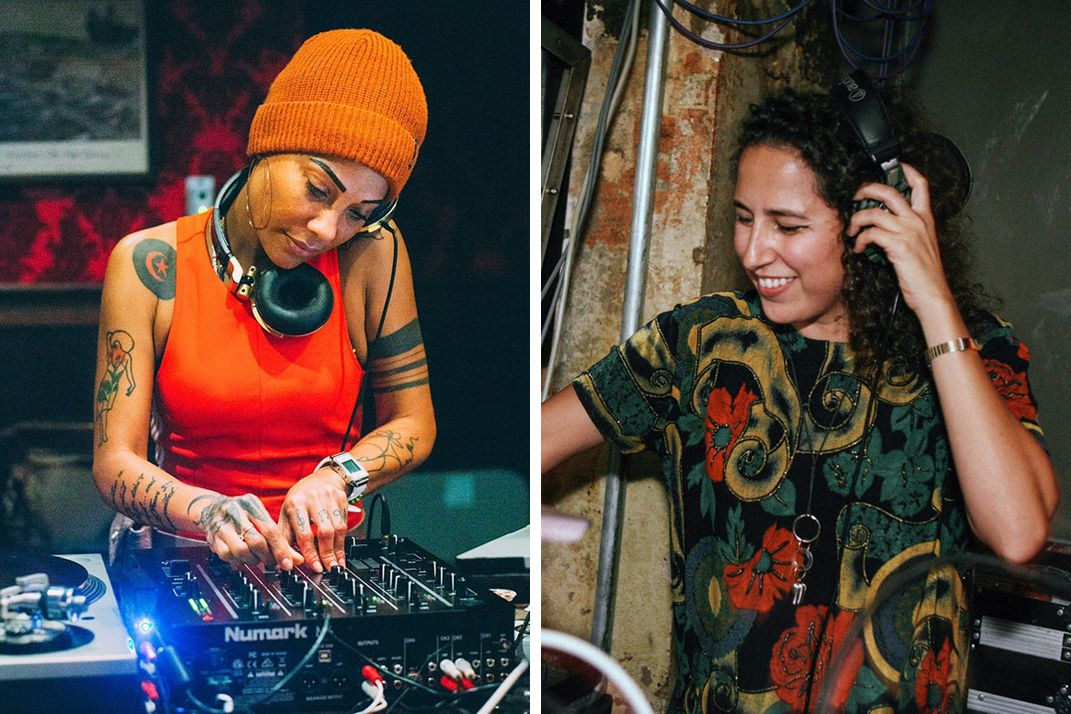Smithsonian’s Folklife Festival Moves into Your Living Room
This year, experience the familiar smells, sights and sounds, while streaming the events online
:focal(883x510:884x511)/https://tf-cmsv2-smithsonianmag-media.s3.amazonaws.com/filer/5d/80/5d808b99-4ce9-45ff-bb7a-4d5aa17c79fe/blm-event.jpg)
Tens of thousands of folks from around the Washington, D.C. area always look forward to the ten days in late June and early July when they can experience the culture, music and food of peoples from across the country and around the world at the Smithsonian’s Folklife Festival on the National Mall. This year, the organizers decided they would not let COVID-19 ruin the party. They’ve moved the Festival online. Now anyone with an internet-enabled device can tune in to talks, performances and food demonstrations, without worrying about heat, humidity, dust or thunderstorms.
The 2020 Festival focuses on the United Arab Emirates; the Northeastern Brazilian states of Bahia, Maranhao, and Pernambuco; the U.S. Department of Energy and the Solar Decathlon; and, the Smithsonian’s Earth Optimism initiative. In the virtual discussions and performances, the Festival will explore how communities draw upon their cultural practices to address environmental challenges. The presentations also aim to “add to the national conversation about racism, intersectional discrimination, and building an equitable, just society,” according to Festival organizers.
The Festival began in 1967 amidst the burgeoning civil rights movement. Then-Secretary S. Dillon Ripley and the Festival’s creators understood that the Smithsonian “had to reflect and challenge America’s image of itself,” says Smithsonian Secretary Lonnie Bunch, in a video introduction. The Festival has often provided a space for difficult discussions and celebrations of creativity “that spark joy and foster possibility,” says Bunch, adding that those missions are as necessary today as they have ever been.
The communities highlighted in the Festival “have much to teach us about building an equitable and sustainable future,” Bunch says.
The Festival will feature daily events June 24 through July 5, but all performances, demonstrations and discussions will be archived. Here’s a sampling of what’s in store:
On June 26, three collegiate teams—from Chile, the Netherlands, and Nevada—will talk about how geography and cultural identity influenced their entries into the Energy department’s Solar Decathlon competition. The Decathlon challenges students to design energy-efficient homes and buildings powered by renewable energy.
Fans of Brazilian music—especially the culture-crossing beats of the Northeastern (Nordeste) region—will want to tune in the afternoon of June 28, when Flávia Bittencourt and Mariene De Castro will appear together in conversation and song. Bittencourt, also an actress, is considered a rising star in Brazil. She has a unique take on the folk tradition of her home state of Maranhao. The charismatic De Castro is known for her slithery sambas and for keeping other folk traditions of Bahia alive and well.

Just in time for the July 4th holiday weekend, get some tips on how to make real Texas barbecue—from two immigrant pitmasters. Hattem Mattar took his Texas training back to Dubai, where he runs Mattar Farm. The restaurant offers authentic smoked turkey, brisket, ribs, chicken, duck and lamb. Mattar will talk with 2018 Festival alumni Berj Ghazarian of the Baltimore, Maryland-based Bark BBQ, about third-culture cuisine and how they are building community around the table.

Later that evening, have a dance party at home with Oakland’s DJ Leydis and Washington, DC’s Kristy la rAt, while streaming the “HouseWork: Latina DJs Holdin’ It Down” session. Leydis, born and raised in Cuba, fuses together contemporary hits with Latin music, R&B classics, and roots reggae, and has worked with Erykah Badu and Quest Love of the Roots, among other American musicians. La rAt mixes up cumbias, bossa novas and Latin folk with electronica. These two women will get you moving.
Check out the Festival’s full schedule and enjoy the streaming; next year organizers are hoping to see everybody back on the National Mall.
/https://tf-cmsv2-smithsonianmag-media.s3.amazonaws.com/accounts/headshot/AliciaAult_1.png)


/https://tf-cmsv2-smithsonianmag-media.s3.amazonaws.com/accounts/headshot/AliciaAult_1.png)